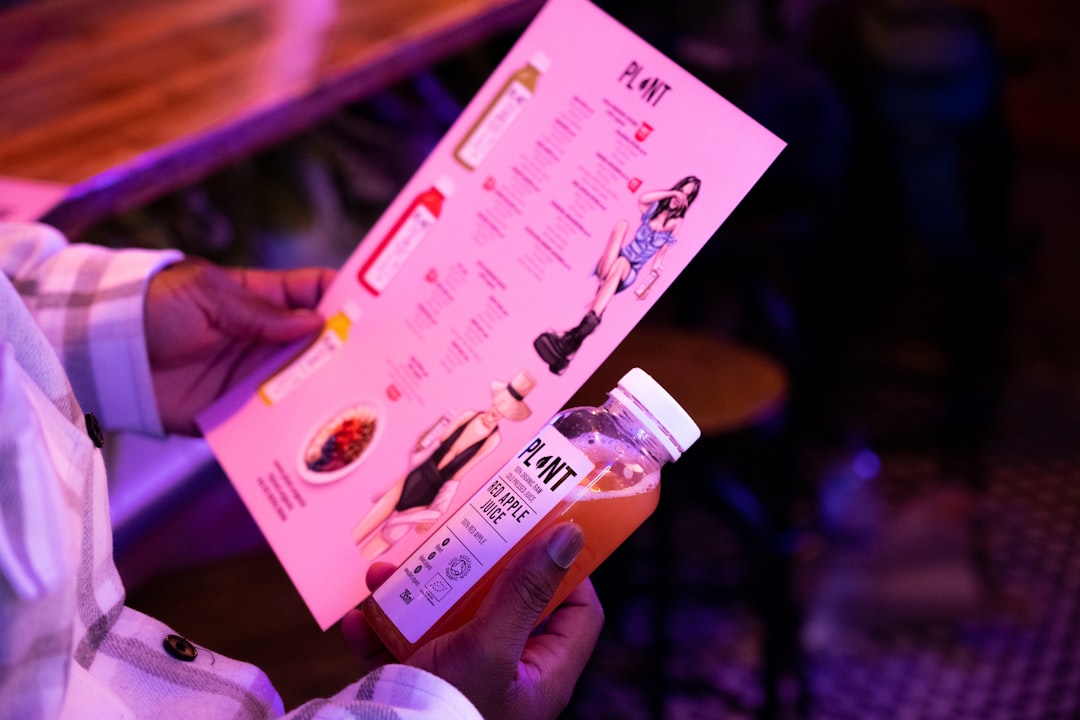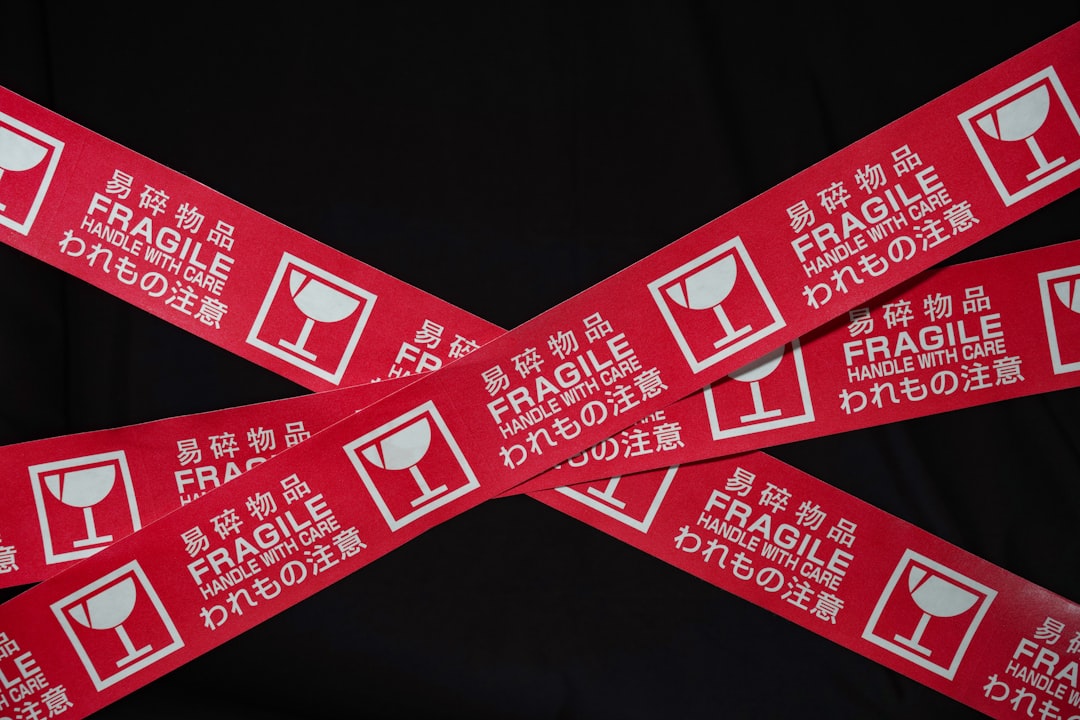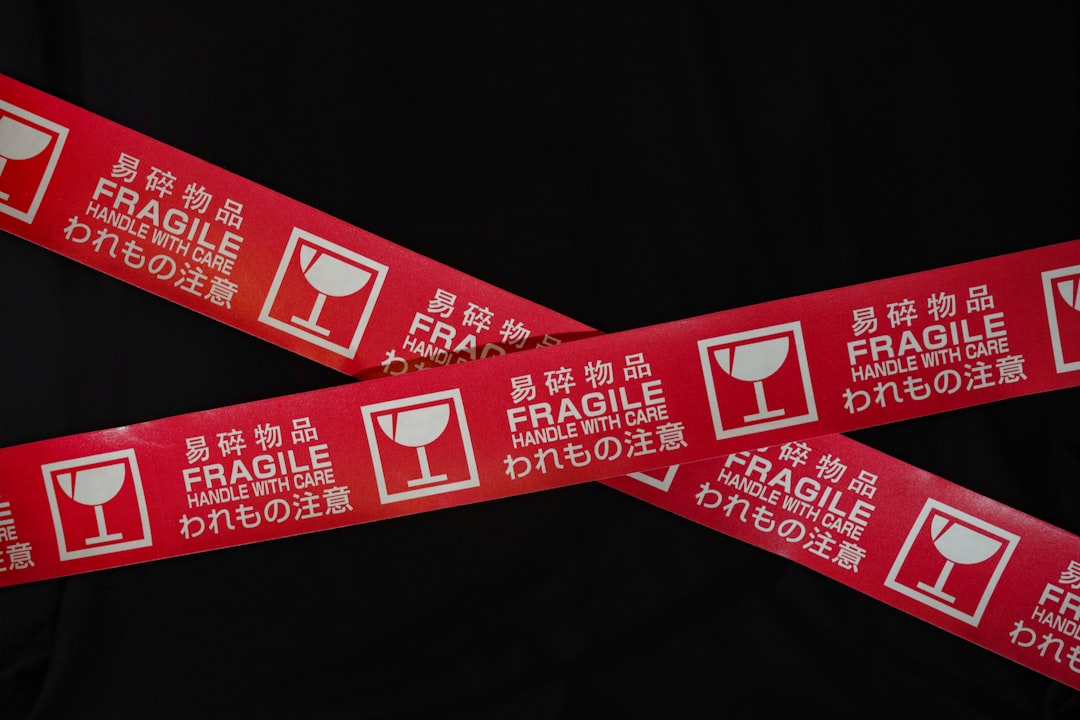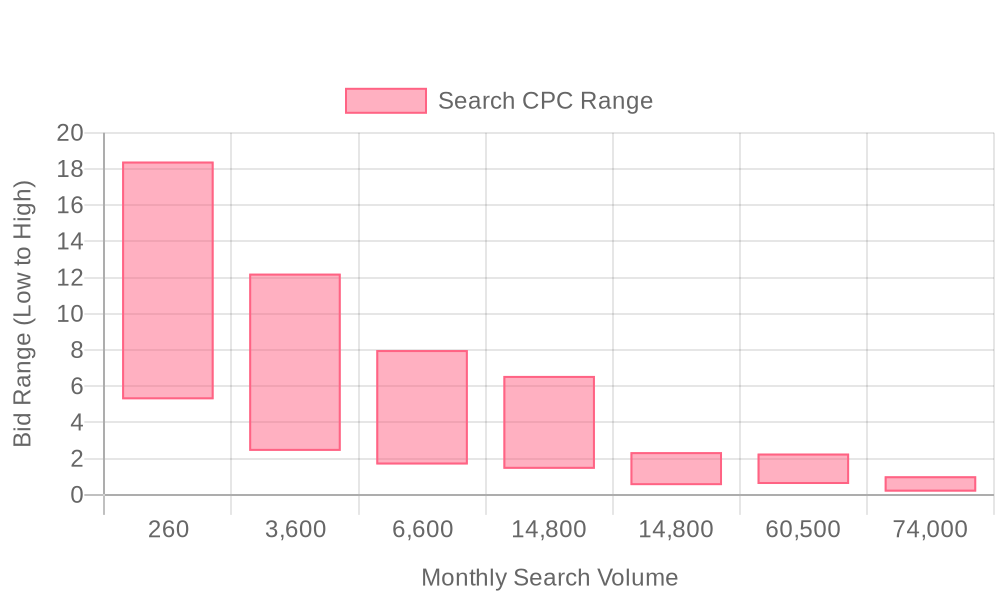
Supercharge your lead generation with a FREE Google Ads audit - no strings attached! See how you can generate more and higher quality leads
Get My Free Google Ads AuditFree consultation

No commitment
Supercharge your lead generation with a FREE LinkedIn Ads audit - no strings attached! See how you can generate more and higher quality leads
Get My Free Google Ads AuditFree consultation

No commitment
Supercharge your lead generation with a FREE Meta Ads audit - no strings attached! See how you can generate more and higher quality leads
Get My Free Google Ads AuditGet My Free LinkedIn Ads AuditGet My Free Meta Ads AuditFree consultation

No commitment
Supercharge your lead generation with a FREE Google Ads audit - no strings attached! See how you can generate more and higher quality leads
Get My Free Google Ads AuditFree consultation

No commitment
In today's dynamic event marketing landscape, effectively using Google Ads is crucial for achieving sold-out events. Marketers face the challenge of standing out in a crowded space, where capturing high-intent prospects at the right moment is critical. Often, high-value prospects remain untracked in CRM systems, leading to lost opportunities. Modern solutions now allow businesses to identify these prospects, ensuring they are included in your targeting strategies. Google Ads offers a direct link between your brand’s online presence and ticket sales success, providing precision targeting to reach event-goers actively searching for tickets. Real-time analytics offer insights to optimize campaigns for maximum ROI. Discover how leveraging Google Ads can revolutionize your approach by identifying decision-makers when they're looking for your events.

Modern event marketing demands more than traditional advertising to drive ticket sales. Data-driven Google Ads campaigns offer a precise way to reach high-intent audiences and optimize spend throughout the funnel. For actionable strategies on promoting events and boosting ticket sales, review this Google Ads for event promotion guide.
Leveraging advanced marketing technology allows B2B revenue teams to unify fragmented data and reveal previously anonymous visitors. This empowers marketers to build richer custom audiences and engage buyers at the right moment, directly supporting ticket sales efforts.
Ready to take your event ticket sales to the next level? Get started for free with Sona.
Event marketers face significant challenges in driving awareness and conversions quickly, especially when event dates are fast approaching and traditional channels alone do not deliver enough qualified leads. Google Ads provides an immediate path to visibility by placing your event in front of high-intent prospects at the exact moment they are searching for relevant experiences or tickets.
By capturing audiences as they actively research or plan attendance, Google Ads solves the core issue of missing high-value prospects who may not engage with email or social media campaigns. With robust targeting, marketers can reach specific segments based on demographics, interests, and intent signals—ensuring that promotional spend is focused on those most likely to buy tickets.
With closed-loop measurement, Google Ads empowers teams to track every interaction from ad click to ticket purchase, tying campaign activity directly to revenue outcomes. Advanced attribution, especially when integrated with platforms that unify go-to-market data, enables marketers to allocate budget efficiently and prove ROI with precision. Audience targeting continues to advance, with real-time intent data and dynamic audience updates reflecting shifts in buyer behavior—critical for optimizing event ticket sales with Google Ads as the event date nears. To see how you can immediately improve your marketing outcomes, get started for free with Sona.

Ready to enhance your event marketing outcomes? Get started for free with Sona.

Identifying and acting on growth opportunities is fundamental for scaling event ticket sales through digital channels. Precision in targeting, measurement, and follow-up ensures every marketing dollar works harder, especially when connecting diverse touchpoints to real revenue outcomes. Leveraging Sona’s real-time audience data empowers event marketers to target the right buyers at the right moment for maximum impact.
Unifying these strategies gives B2B event marketers a holistic, data-driven framework to identify, capture, and accelerate new growth opportunities in event ticket sales. By leveraging real-time intent and seamless CRM-to-ad platform integration, teams can consistently drive higher attendance and maximize the impact of every campaign. Ready to optimize your event marketing? Get started for free with Sona.

Precision in audience segmentation defines successful event promotion. Marketers who leverage granular targeting for Google Ads for Event Ticket Sales consistently realize higher engagement and lower wasted spend. By mapping out the specific interests and behaviors of event-goers, campaigns adapt to shifting market demand rather than relying on generic, one-size-fits-all promotions. For more strategies on segmenting your audience, explore our actionable marketing playbooks.
Applying disciplined audience segmentation transforms event marketing from broad-based outreach to a revenue-driving engine, with every ad dollar mapped to measurable business impact. Get started for free with Sona.

| Industry | Keyword | Monthly Search Volume | Competition Level | Low Bid | High Bid |
| Event Ticket Sales | event ticket sales | 260 | MEDIUM | 5.28 | 18.41 |
| Event Ticket Sales | sell tickets online | 3600 | MEDIUM | 2.43 | 12.22 |
| Event Ticket Sales | sell tickets | 6600 | MEDIUM | 1.68 | 8 |
| Event Ticket Sales | dead and company tickets | 14800 | LOW | 1.44 | 6.57 |
| Event Ticket Sales | kane brown tickets | 14800 | LOW | 0.54 | 2.36 |
| Event Ticket Sales | washington wizards tickets | 60500 | MEDIUM | 0.6 | 2.28 |
| Event Ticket Sales | taylor swift concert tickets | 74000 | LOW | 0.18 | 1.03 |
Precision in keyword targeting drives measurable growth in Google Ads for event ticket sales. Revenue teams who invest in advanced keyword strategies capture high-intent buyers while competitors remain stuck in broad or generic targeting. For a deeper dive into current B2B marketing trends and data-driven tactics, explore our latest insights and articles.
Combining these keyword strategies with unified go-to-market data lets revenue teams identify emerging demand pockets, build dynamic audiences, and sync high-value leads directly into Google Ads and CRM platforms. This enables smarter budget allocation, more personalized engagement, and a measurable lift in event ticket sales optimization. If you're ready to optimize your own campaigns, get started for free with Sona and unlock advanced keyword and audience solutions.
Success with Google Ads for Event Ticket Sales depends on a precise approach to keyword research and segmentation. Clustering keywords by event type and location enables marketers to match intent with relevant offers and capture buyers at different stages in the funnel. For example, segmenting by "music festival tickets in Chicago" versus "virtual conference registration" ensures campaigns address distinct audiences and local demand, reducing wasted spend. For actionable steps on campaign setup, this guide to Google Ads for events outlines strategies tailored to event marketing.
Implementing negative keywords refines targeting further, filtering out irrelevant traffic and improving cost-efficiency. This disciplined approach helps avoid clicks from users unlikely to convert, such as those searching for free events or unrelated activities. When leveraged with Sona Identification, marketers can analyze which keyword clusters attract high-value, in-market accounts and dynamically adjust bids to focus on the segments most likely to drive ticket sales.
Compelling ad copy is the linchpin of successful event ticket advertising. Headlines must immediately communicate what makes an event unique, capturing attention in a crowded search landscape. Incorporating specifics—like headline mentions of headline speakers, exclusive access, or one-night-only performances—enables differentiation from commoditized event promotions and draws interest from high-intent buyers. Explore a practical guide to building Google Ads campaigns aimed at boosting event ticket sales.
Trust signals, such as “official partner” status or verified reviews, paired with urgency-driven calls-to-action, help drive engagement and accelerate decision-making. Leveraging Sona Audiences, teams can tailor ad messaging to a prospect’s stage in the buying journey, ensuring the right incentive or trust element appears just as a hot lead is primed to convert. This dynamic messaging approach increases both click-through rates and on-site engagement, supporting rapid ticket sales growth.
Landing page design is pivotal for converting ad clicks into online ticket sales. Consistency between keyword, ad message, and landing page content reassures visitors they’re in the right place, reducing bounce rates and increasing conversion likelihood. Addressing the specifics of the event—date, location, line-up, and pricing—upfront ensures clarity for prospects coming from Google Ads for events.
Incorporating testimonials and FAQs builds credibility, particularly for new visitors or major events where purchase hesitation is common. By analyzing Sona Buyer Journeys and integrating CRM data, teams can personalize landing page elements for returning or high-value visitors, surfacing the most relevant information and offers. This strategy streamlines the path from ad click to purchase, directly tying digital interactions to revenue outcomes.
Continuous optimization is essential for maximizing ROI in ticket sales campaigns. A/B testing headlines, descriptions, and visual assets reveals which combinations drive the highest engagement, especially when performance is tracked not just by click metrics but by downstream conversions and revenue. Anonymous traffic analysis, paired with Sona Identification, enables marketers to uncover which segments are engaging but not converting, informing adjustments in targeting and creative.
Importing offline sales data, such as call center bookings or bulk ticket purchases, closes the attribution loop and allows for optimization based on true revenue impact. Synchronizing CRM and ad platform audiences ensures that as leads advance through the funnel, campaigns automatically adjust—excluding converted buyers or targeting upsell opportunities with relevant messaging. This unified data approach accelerates the feedback cycle, ensuring every optimization is grounded in real business outcomes. To see how seamless data activation can enhance your campaigns, get started for free with Sona.

Maximizing your event reach starts with leveraging audiences already familiar with your brand. Cross-promoting events through educational content in retargeting ensures your message lands in front of users who have previously signaled interest, turning passive prospects into active registrants. Explore dynamic audience segmentation to reach the right segments at the perfect moment.
Partnering with influencer networks and industry associations unlocks access to specialized audience segments that standard campaigns often overlook. These collaborations enable you to speak directly to niche markets, leveraging trusted voices to boost event credibility and engagement. For more data-driven strategies, review our latest marketing insights.
Localizing campaigns empowers you to dominate target metros, avoiding the inefficiencies of broad, generic outreach. By tailoring creatives and messaging for specific regions, your campaigns achieve higher relevance, resulting in improved click-through rates and reduced wasted spend. See how audience data sync helps ensure your regional targeting is always up to date.
Using search data as a content generator keeps your event messaging fresh and aligned with actual demand trends. Analyzing real-time queries uncovers emerging topics and questions, informing new landing pages, blog posts, and ad copy that resonate with your audience’s current needs. Check out this guide on using Google Ads for events to further refine your campaign approach.
Incorporating Google Ads for Event Ticket Sales into your ticket sales strategy enables precise targeting and dynamic audience management. Smart segmentation, powered by unified go-to-market data, allows marketers to identify not just anonymous traffic, but actual companies and decision-makers visiting key event pages. As leads signal intent, dynamic audiences update automatically, aligning messaging and offers to where prospects are in the funnel. With enriched CRM and ad sync, every engagement with your ads is attributed and measured—online and offline—providing full visibility into the ROI of your event marketing efforts. Ready to scale your event success? Get started for free with Sona.
In conclusion, mastering Google Ads for event ticket sales is crucial for maximizing your reach and ensuring a successful event. From understanding Google Ads' eligibility and requirements to implementing effective strategies, you've gained insights into leveraging this powerful tool to promote and sell tickets efficiently.
Throughout this article, we've navigated the challenges of crafting compelling ad campaigns, selecting the right keywords, and optimizing ad spending. By focusing on these key elements, you can enhance your advertising efforts and drive more ticket sales, ensuring your events reach the right audience at the right time.
The possibilities for transforming your event promotions are within reach. By applying these strategies, you can enhance your brand's visibility and impact while maximizing ROI. Embrace the actionable steps discussed and watch your ticket sales grow, bringing your events to life in ways that resonate with your target audience.
Ready to take your event marketing to the next level? Start for free to experience our platform and its capabilities today.
While specific eligibility requirements are not detailed in the article, advertisers should refer to the official Google Ads policy guidelines for compliance when advertising event tickets.
To create an effective Google Ads campaign, focus on strategic keyword selection, dynamic audience building, and cohesive creative alignment from ad to landing page. Continuous optimization and audience segmentation are also crucial.
Strategies include using data-driven Google Ads campaigns, leveraging audience enrichment, implementing precise keyword targeting, and optimizing ad creative and landing pages for conversion.
Google Ads helps by providing immediate visibility to high-intent prospects actively searching for events, enabling precision targeting and real-time performance insights to optimize ticket sales.
The best types of campaigns include Search, Display, Video, Remarketing, and using Ad Extensions, each offering unique benefits for reaching and converting potential attendees.
Join results-focused teams combining Sona Platform automation with advanced Google Ads strategies to scale lead generation

Connect your existing CRM

Free Account Enrichment

No setup fees
No commitment required

Free consultation

Get a custom Google Ads roadmap for your business
Join results-focused teams combining Sona Platform automation with advanced Meta Ads strategies to scale lead generation

Connect your existing CRM

Free Account Enrichment

No setup fees
No commitment required

Free consultation

Get a custom Google Ads roadmap for your business
Join results-focused teams combining Sona Platform automation with advanced LinkedIn Ads strategies to scale lead generation

Connect your existing CRM

Free Account Enrichment

No setup fees
No commitment required

Free consultation

Get a custom Google Ads roadmap for your business
Join results-focused teams using Sona Platform automation to activate unified sales and marketing data, maximize ROI on marketing investments, and drive measurable growth

Connect your existing CRM

Free Account Enrichment

No setup fees
No commitment required

Free consultation

Get a custom Google Ads roadmap for your business
Over 500+ auto detailing businesses trust our platform to grow their revenue
Join results-focused teams using Sona Platform automation to activate unified sales and marketing data, maximize ROI on marketing investments, and drive measurable growth

Connect your existing CRM

Free Account Enrichment

No setup fees
No commitment required

Free consultation

Get a custom Google Ads roadmap for your business
Over 500+ auto detailing businesses trust our platform to grow their revenue
Join results-focused teams using Sona Platform automation to activate unified sales and marketing data, maximize ROI on marketing investments, and drive measurable growth

Connect your existing CRM

Free Account Enrichment

No setup fees
No commitment required

Free consultation

Get a custom Google Ads roadmap for your business
Over 500+ auto detailing businesses trust our platform to grow their revenue
Our team of experts can implement your Google Ads campaigns, then show you how Sona helps you manage exceptional campaign performance and sales.
Schedule your FREE 15-minute strategy sessionOur team of experts can implement your Meta Ads campaigns, then show you how Sona helps you manage exceptional campaign performance and sales.
Schedule your FREE 15-minute strategy sessionOur team of experts can implement your LinkedIn Ads campaigns, then show you how Sona helps you manage exceptional campaign performance and sales.
Schedule your FREE 15-minute strategy sessionOur team of experts can help improve your demand generation strategy, and can show you how advanced attribution and data activation can help you realize more opportunities and improve sales performance.
Schedule your FREE 30-minute strategy sessionOur team of experts can help improve your demand generation strategy, and can show you how advanced attribution and data activation can help you realize more opportunities and improve sales performance.
Schedule your FREE 30-minute strategy sessionOur team of experts can help improve your demand generation strategy, and can show you how advanced attribution and data activation can help you realize more opportunities and improve sales performance.
Schedule your FREE 30-minute strategy sessionOur team of experts can help improve your demand generation strategy, and can show you how advanced attribution and data activation can help you realize more opportunities and improve sales performance.
Schedule your FREE 30-minute strategy session





Launch campaigns that generate qualified leads in 30 days or less.
